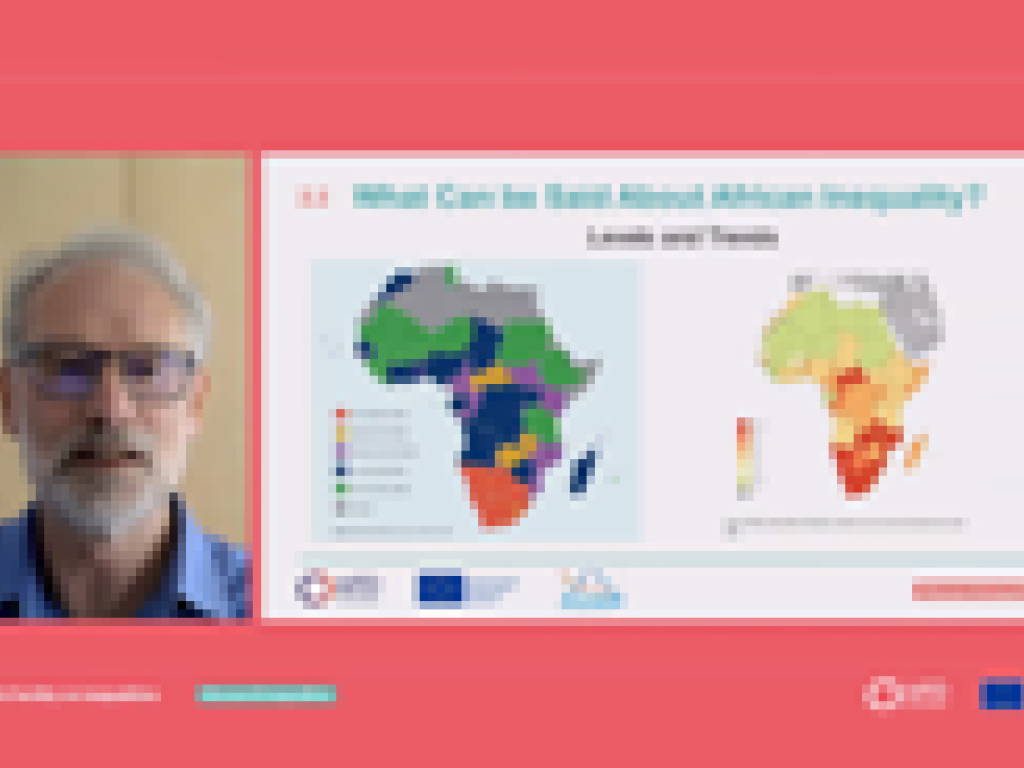African inequalities highlighted by ACEIR at international conference

The Research Facility on Inequalities, which was financed by the EU's Development Cooperation Instrument and carried out by the Agence Française de Développement (AFD), was designed to deepen the understanding of socio-economic inequalities in low- and middle-income countries and analyse the public policy and development policy levers for reducing these. ACEIR’s work since its establishment was part of the Facility’s research projects that focused primarily on vertical inequalities while exploring themes such as health, education, taxation, and access to essential services.
With progress in inequality reduction being reversed in many countries due to the COVID-19 pandemic and its social and economic impacts, the Research Facility’s closing conference was particularly timely.
Presenting on day two of the online event, the ACEIR country nodes’ conveners had the opportunity to present findings from the inequality trends reports published for Ghana, Kenya and South Africa; and discuss these with the conference participants.
At another session on the same day, ACEIR’s director – Prof Murray Leibbrandt – discussed the approach to and value of the inequality diagnostics as part of a conference session on various tools that were developed or expanded through the Research Facility to assist policies and strategies to address inequalities.
“Publishing inequality diagnostics is not the end of the process but the start”, Prof Leibbrandt told the panel as he emphasised “to take research findings forward to stakeholder engagements with governments, civil society, and international development agencies”. In the case of the South African report, launched in November 2019, the findings were discussed at a stakeholder event chaired by a senior official in the country’s Presidency. The Ghana report findings, too, were presented and discussed at a public launch that was attended by government officials, development agencies, academics, and journalists.
Responding to the ACEIR report presentations by Prof Robert Darko Osei (University of Ghana), Prof Damiano Manda (University of Nairobi) and Prof Vimal Ranchhod (University of Cape Town), was the AFD deputy-director of the economic assessment and public policy department, Ms Cecile Valadier. She highlighted that collaborating with ACEIR on inequality diagnostics for African countries helps the AFD to reach stakeholders beyond the usual engagement with government departments.
The increase in African inequalities is underlining the urgency to get serious about the United Nations’ Agenda 2030, Dr Anda David, AFD’S lead economist on inequality, told the conference. “This calls for more evidence-based tools, such as the inequality diagnostics, to help reach Sustainable Development Goal 10 to reduce inequality”, she added. In particular, local ownership, including support to municipalities to enable them to use and interpret data, is an important aspect of strategies to overcome inequality”, according to Dr David.
Conference speakers included dignitaries from the European Union, the AFD and eminent scholars such as Thomas Piketty, Professor of Economics at the Paris School of Economics and London School of Economics and Political Science. Recordings of all the sessions are available on the conference website.
